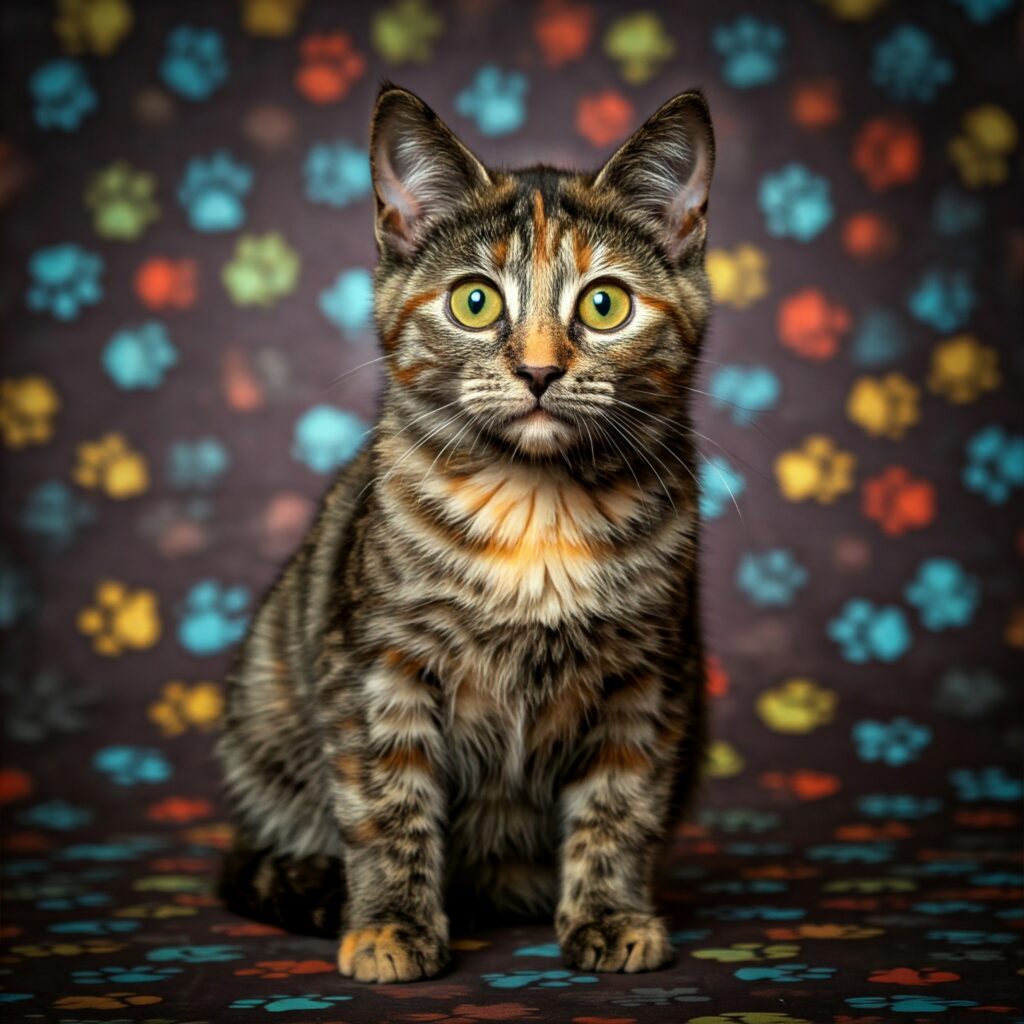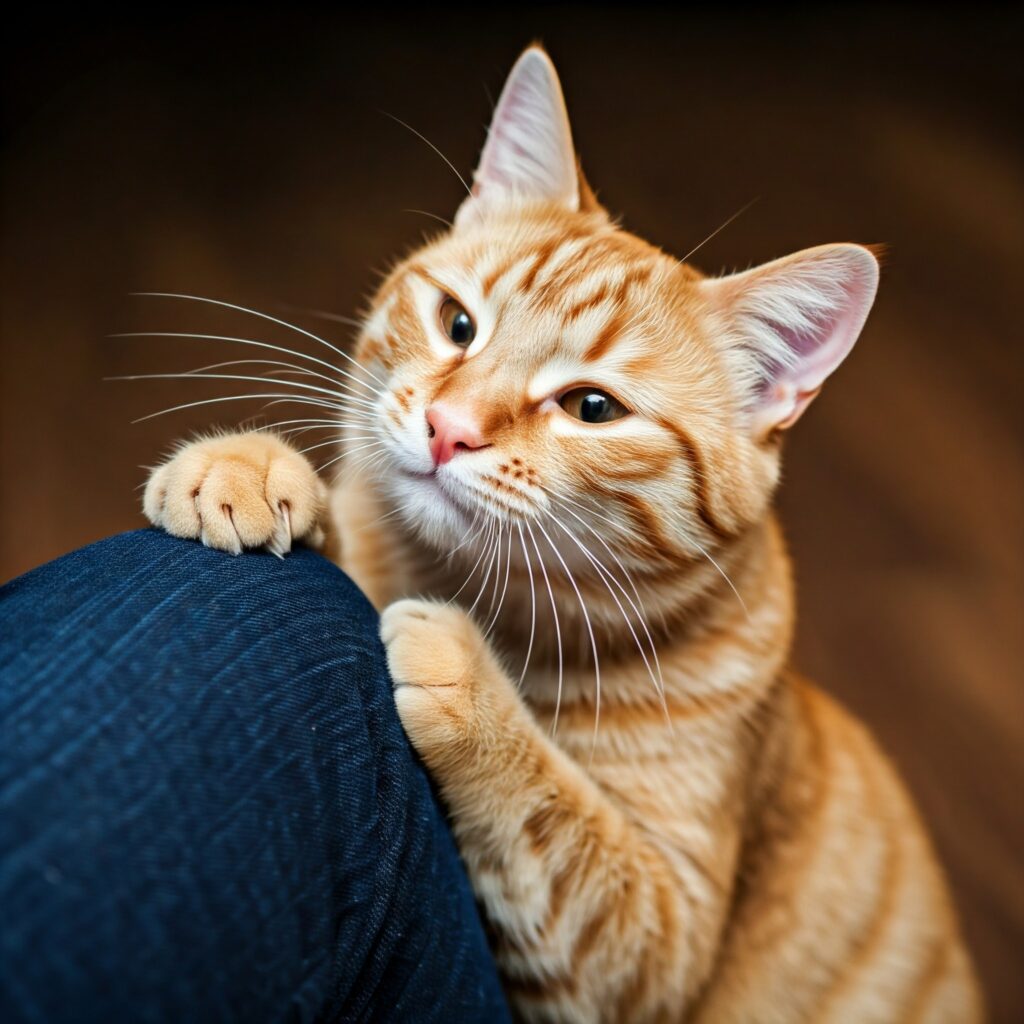Cats communicate differently than humans. They are more subtle and nuanced. While they may not shower us with kisses and hugs, their affection manifests in unique ways.
Table of Contents
- Body Language:
- Slow Blinking: This is a classic sign of feline contentment. When your cat slowly blinks at you, it’s their way of saying, “I trust you and feel safe around you.” Try mimicking this slow blink back to show you reciprocate their trust.
- Rubbing Against You: Cats have scent glands all over their bodies. When they rub against you, they’re leaving their scent on you, claiming you as their own. This is a strong sign of affection and territory marking.
- Head Butting: This is another way cats mark their territory. When your cat gently bumps their head against you, they’re leaving their scent on you and showing affection.
- Purring: Purring is often associated with contentment and pleasure. However, cats also purr when they are stressed or injured. Pay attention to other body language cues to determine the meaning behind the purr.
- Kneading: This behavior, often called “making biscuits,” is a remnant of kittenhood. Cats knead on their mothers to stimulate milk production. When your cat kneads on you, it’s a sign of comfort and contentment.
- Vocalizations:
- Meows: Cats meow primarily to communicate with humans. While they may meow for food or attention, they also meow to express affection. A soft, gentle meow can be a sign of greeting or a request for company.
- Chirping: This high-pitched sound is often associated with excitement and happiness. Cats may chirp when they see a bird or a toy, but they may also chirp when they’re happy to see you.

Recognizing Affection in Different Situations
- Playtime:
- Cats love to play, and playtime is a great opportunity to bond with your feline friend. When your cat actively engages in play with you, it shows they enjoy spending time with you and find you stimulating.
- Pay attention to their play style. If they are gentle and playful, it’s a good sign of affection. If they become overly aggressive or destructive, it’s important to redirect their energy and provide appropriate toys.
- Grooming:
- While cats are meticulous groomers themselves, they may also groom you. This is a sign of affection and trust. It’s their way of showing you belong to their social group.
- Sleeping Near You:
- Cats are naturally solitary creatures, so choosing to sleep near you is a significant gesture of trust and affection. It shows they feel safe and comfortable in your presence.
Building a Stronger Bond with Your Cat
- Interactive Play:
- Engage in interactive play sessions with your cat using toys like wand toys, feather toys, and puzzle feeders. This will stimulate their minds and strengthen your bond.
- Grooming Sessions:
- Gently pet and groom your cat. This will not only help them stay clean but also provide valuable bonding time.
- Create a Safe and Comfortable Environment:
- Provide your cat with a safe and comfortable environment with plenty of hiding spots, scratching posts, and cozy beds.
- Respect Their Space:
- While cats enjoy affection, it’s important to respect their boundaries. Don’t force interaction if they seem stressed or want to be alone.

Q&A
- Q: My cat never purrs around me. Does this mean they don’t love me?
- A: Not necessarily. While purring is a common sign of contentment, not all cats purr frequently. Pay attention to other signs of affection, such as slow blinking, rubbing, and sleeping near you.
- Q: My cat bites me sometimes while playing. Does this mean they don’t like me?
- A: Play biting can sometimes occur, especially with kittens. If the biting becomes too hard or frequent, redirect their attention to a toy.
- Q: How can I tell if my cat is stressed?
- A: Signs of stress in cats include hiding, over-grooming, aggression, and changes in appetite or litter box habits.
Conclusion
While cats may not express their love in the same way humans do, their affection is undeniable. By understanding their unique communication styles and creating a loving and respectful environment, you can build a strong and lasting bond with your feline companion. Remember to observe their behavior, respect their boundaries, and most importantly, enjoy the unique and rewarding experience of sharing your life with a cat.


